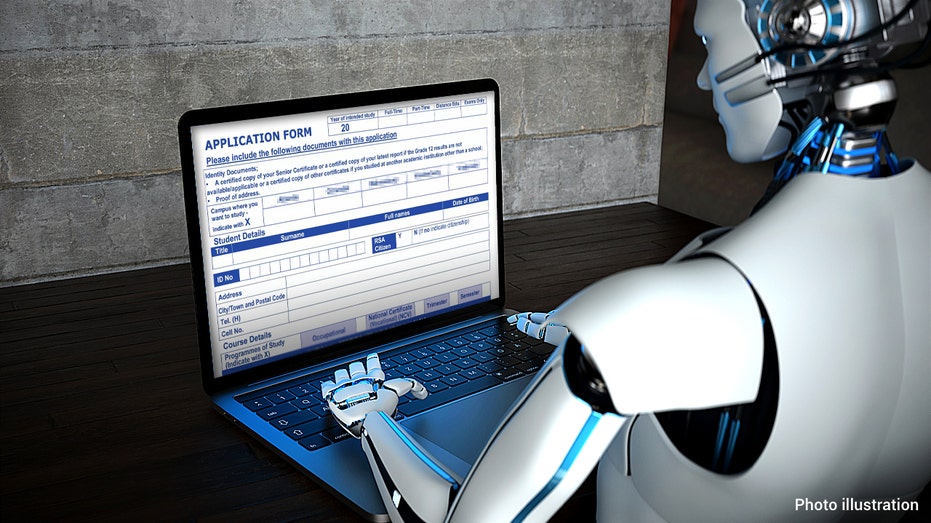Business leaders planning to hire more workers despite rise of AI: survey
The survey also found a disconnect between C-suite executives and middle management about companies' embrace of AI
Artificial intelligence will affect every aspect of life: Eric Hippeau
Lerer Hippeau Ventures managing partner Eric Hippeau gives his take on how investors should respond to the development of A.I. on The Claman Countdown.
A new survey finds that business leaders believe that the rise of generative artificial intelligence (AI) will spur companies to hire more workers – findings that come in stark contrast to concerns that AI could prompt widespread layoffs.
The newly created Upwork Research Institute, a research arm of the freelancing platform Upwork, surveyed 1,400 U.S. business leaders ranging from C-suite executives to senior managers across a variety of industries about their organization’s use of AI and how it will impact their future workforce.
Nearly two-thirds, 64%, of C-suite respondents said they expect to hire more professionals of all types due to generative AI. When asked about the types of workers they plan to hire and whether they’ll be classified as full-time employees or freelancers, 49% of the business leaders surveyed said freelancers and 49% said full-time employees, leaving them essentially evenly divided.
Amid the rapid onset of generative AI technologies like ChatGPT since late last year, concerns have risen about the potential impact of AI on the workforce and whether it could prompt mass layoffs.
AI INTERVIEWS WILL BE USED BY 43% OF COMPANIES BY NEXT YEAR, SURVEY FINDS

An Upwork survey of business leaders shows a majority expect the growth of generative AI to lead to more hiring. (iStock / iStock)
Some of the economic research on the subject, such as a study by Goldman Sachs, indicates that AI is more likely to be a complementary tool for human workers than an outright replacement for human employees. The study Goldman Sachs study found that about two-thirds of U.S. jobs are exposed to some degree of AI-informed automation, but that the average number of tasks in the daily workload for a given job that can be automated by AI ranged between a quarter to one-half.
Upwork’s survey also found that there is a disconnect between the C-suite executives and their senior managers regarding the degree to which their companies are adopting generative AI. While 73% of C-suite executives said their company embraces AI, just 54% of VPs, 52% of directors and 53% of senior managers expressed the same sentiment.
CONSUMER GROUPS CALL ON US AND EU TO REGULATE AI THAT POWERS CHATGPT

The rise of generative AI has sparked concerns about its potential impact on the workforce. (iStock / iStock)
"The early findings from our study reveal that embracing generative AI throughout all levels of an organization will be imperative," said Kelly Monahan, managing director of the Upwork Research Institute. "However, our survey shows that there is currently a disconnect between C-suite executives and their teams and this is likely due to a lack of training and understanding of how this technology will impact work."
"Businesses that want to bridge this gap should roll out a change management strategy that includes: communicating the expected outcomes for their workforce in relation to generative AI adoption, and clear policies. It’s important that leaders address fear and uncertainty, and, perhaps, most critically, encourage their teams to adopt a learning orientation," Monahan added.
ALPHABET EXEC: ‘AI AUTOMATES TASKS, NOT JOBS’

Upwork's survey found a disconnect between C-suite executives and middle management in terms of the degree to which their companies embrace AI. (istock / iStock)
Upwork’s survey also found differences in the adoption of AI based on the size of a given company and the degree to which its workforce is fully in-person or remote in terms of its work arrangements.
The survey found that 62% of midsized companies with workforces of between 501 and 5,000 employees are leveraging AI, compared to 41% of larger companies with more than 5,001 employees and 56% of small companies with 251 to 500 employees.
| Ticker | Security | Last | Change | Change % |
|---|---|---|---|---|
| UPWK | UPWORK INC. | 18.93 | +1.11 | +6.23% |
GET FOX BUSINESS ON THE GO BY CLICKING HERE
Companies that have remote-first workforces are also more likely to use AI, as the survey found that 68% of full-time remote firms are embracing AI compared to 53% of companies that are full-time in the office.
Over half of the respondents at companies with hybrid arrangements ranging from three to four remote days per week to two to three remote days a month said they’re embracing generative AI.




















